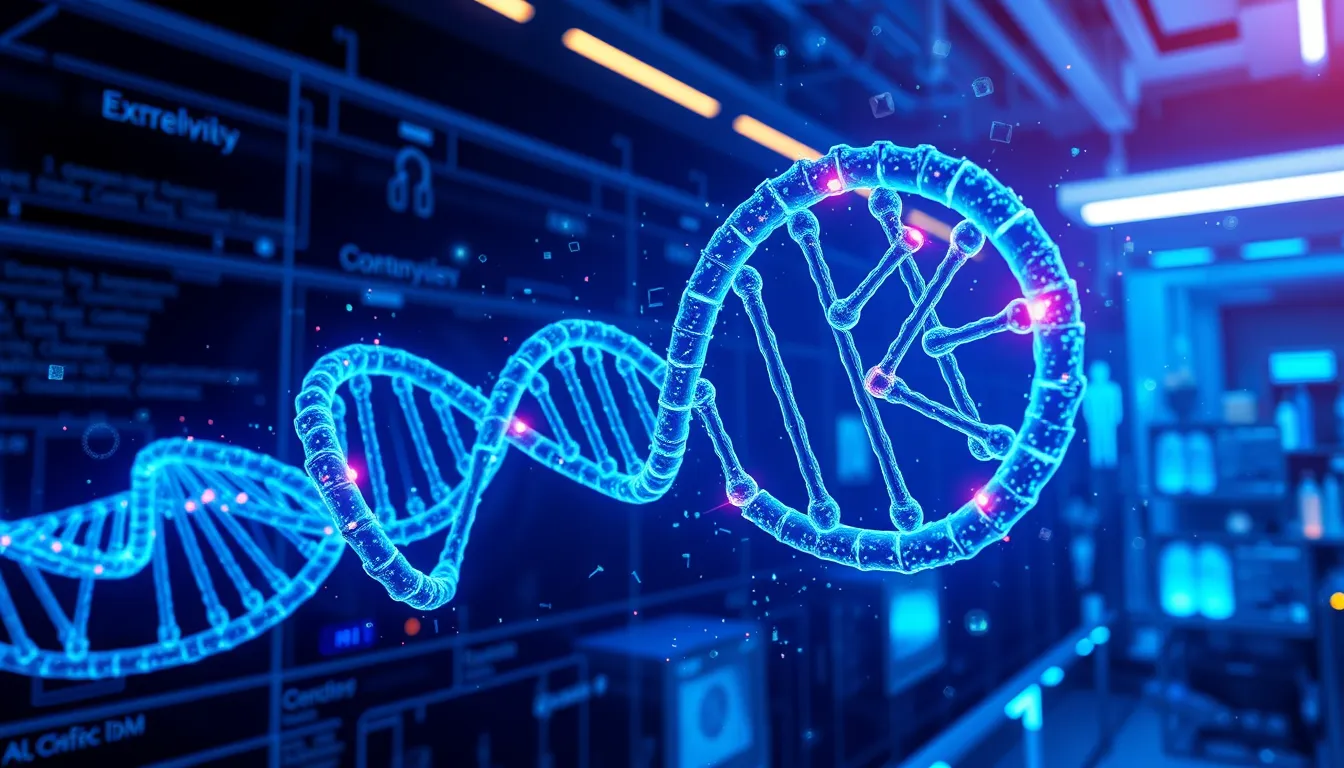Now Reading: Google AI Cancer Detection: A Revolution in Precision Oncology
-
01
Google AI Cancer Detection: A Revolution in Precision Oncology
Google AI Cancer Detection: A Revolution in Precision Oncology

Google AI Cancer Detection: A Revolution in Precision Oncology
Google’s innovative AI technology is rapidly reshaping cancer diagnosis and treatment. The breakthrough in Google AI cancer detection is setting new standards for precision oncology, offering oncologists an advanced tool to identify genetic drivers of cancer. In this article, we explore how Google AI is not only transforming early diagnosis and targeted therapies but also paving the way for personalized cancer treatment.
Introduction to Google AI Cancer Detection
The fight against cancer has entered a new era thanks to the integration of artificial intelligence into healthcare. Google’s latest breakthrough in AI cancer detection utilizes state-of-the-art machine learning algorithms to analyze genomic data. This precision approach is designed to detect subtle genetic mutations that drive cancer progression. By harnessing sophisticated analytical methods, the system offers the potential for earlier diagnosis and more effective, tailored treatment plans.
How Google AI Identifies Genetic Drivers
One of the most exciting aspects of this technological advancement is understanding how Google AI identifies genetic drivers. By processing colossal datasets, the tool highlights minor genetic alterations that have historically gone unnoticed in conventional screenings. This capability is crucial in cancer genomic analysis, helping researchers determine which mutations are most responsible for aggressive tumor behavior. Moreover, this advanced AI tool for cancer deepens our understanding of the disease’s underlying mechanisms and opens avenues for targeted therapies.
The Role of Advanced Machine Learning
Integrating machine learning in cancer research, Google’s tool sifts through vast amounts of genetic data with unprecedented speed and accuracy. The process involves:
- Data Acquisition: Collecting extensive genomic datasets from cancer patients.
- Pattern Recognition: Identifying subtle mutations that signify risk factors.
- Predictive Analysis: Forecasting potential cancer progression based on genetic trends.
This precise analysis supports what is known in the field of AI cancer detection and underscores the transformative potential of technology in healthcare.
Enhancing Precision Oncology Through AI
Precision oncology benefits immensely from breakthroughs like Google AI cancer detection. The approach tailors treatment plans by considering the unique genetic makeup of each patient’s tumor. With this innovative technology, oncologists can pinpoint the exact mutations that need to be targeted, maximizing treatment efficacy and minimizing side effects. The integration of precision oncology in clinical practice is set to increase the accuracy of diagnoses while fostering the development of personalized therapeutic strategies.
Early Diagnosis and Targeted Therapies
The capability of the AI tool for early cancer diagnosis is particularly promising. Early detection can be the difference between a successful treatment plan and a less favorable outcome. By rapidly identifying critical genetic markers, the system not only expedites the diagnostic process but also helps in formulating strategies for targeted cancer therapies. These breakthroughs are critical in reducing the time between detection and the administration of treatment, ultimately saving lives.
Collaboration and Future Prospects
Google’s commitment to advancing healthcare is demonstrated through continuous collaboration with leading cancer research institutions. By working together with academic and clinical entities, the company ensures that its AI models are updated and refined regularly. For further reading on pioneering cancer research, you can visit the National Cancer Institute at https://www.cancer.gov for credible, up-to-date information.
Additionally, partnerships with renowned healthcare providers ensure that innovations like Google AI cancer detection are tested and validated in real-world clinical settings. This integration of research with clinical practice is a significant step forward in achieving breakthrough developments in precision oncology.
Conclusion
In conclusion, the advent of Google AI cancer detection marks a transformative moment in the battle against cancer. By leveraging advanced machine learning and targeting the genetic drivers of cancer, this technology paves the way for a future where early diagnosis and customized treatment plans are the norm. As more research is conducted and the technology continues to evolve, we can expect further breakthroughs that will revolutionize oncology practice.
Google’s innovative approach not only streamlines cancer genomic analysis but also highlights the potential for technology to contribute significantly to healthcare advancements. To learn more about Google’s initiatives and its impact on healthcare technology, visit the official Google website at https://about.google/.
With a focus on precision oncology and early diagnosis, Google AI cancer detection is truly a game changer. The emphasis on understanding how Google AI identifies genetic drivers and offers an AI tool for early cancer diagnosis ensures that both researchers and clinicians are better equipped to fight cancer in innovative ways.
This comprehensive review underscores the critical role of AI in modern medicine and offers a glimpse into the promising future of personalized cancer therapies. By integrating advanced AI techniques, the healthcare sector stands on the brink of a new era, where cancer detection and treatment are more precise, swift, and effective.

























